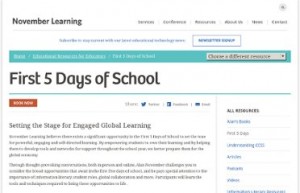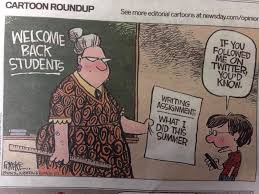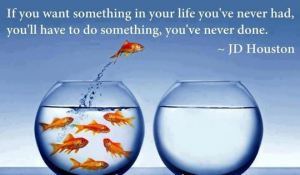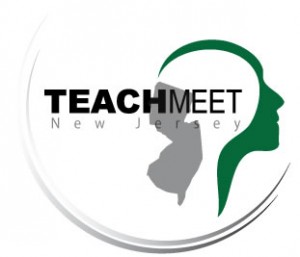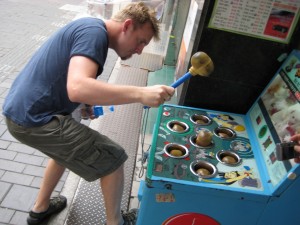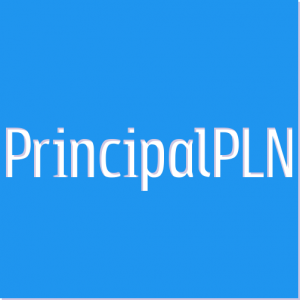Guest post by Mark Barnes

via: Corwin.com/connectededucators
Ask any of the thousands of teachers who regularly use Twitter, Pinterest, or Facebook about connected education, and you may get an earful about using digital tools as a means to connect with educators and students worldwide.
But if you ask teachers who have never used a social network, blog, or mobile device for learning in their classrooms to discuss connected education, you are likely to be met with blank stares, furrowed eyebrows and shrugged shoulders.
Enter Corwin Press and the Connected Educators Series.
In an effort to connect all teachers, EdWeek author and Corwin editor Peter DeWitt enlisted the help of his professional learning network (PLN) in order to launch a series of books on digital learning, digital leadership, mobile learning, digital citizenship, and everything else that is connected education.
It is our hope and intent to meet you where you are in your digital journey, and elevate you as educators to the next level. Peter DeWitt, Connected Educators Series Editor
Corwin’s Connected Educators Series features short books, about 70 pages, in both paperback and electronic formats, aimed at helping educators improve classroom practice and educational leadership in the digital world, something that has been sorely missing in the education book world.
The first books in the series will be published in August and September.
Corwin Connected Educators Series
The Relevant Educator: How Connectedness Empowers Learning, by Tom Whitby and Steven Anderson: Two of the profession’s most connected educators explain how to effectively use social media to build a professional learning network.
Flipped Leadership Doesn’t Mean Reinventing the Wheel, by Peter DeWitt: If we can flip the classroom, why can’t we flip faculty meetings and other kinds of communication with parents and teachers? According to DeWitt, we can.

Connected Educators Series
The Edcamp Model: Powering Up Professional Learning, by The Edcamp Foundation: Professional development has never been so simple than when teachers create it. The Edcamp model connects educators to PD like never before.
Teaching the iStudent: A Quick Guide to Using Mobile Devices and Social Media in the K-12 Classroom, by Mark Barnes: Knowledge is in the palm of learners’ hands, making them iStudents. This book helps teachers understand how to maximize this incredible power.
The Corwin Connected Educators series is your key to unlocking the greatest resource available to all educators: other educators.
Connected Leadership: It’s Just a Click Away, by Spike Cook: In the 21st-century, it’s critical that principals create a transparent school for all stakeholders. Principal Cook shows school leaders how to author blogs, PLNs and more, in order to open up a digital window to your school for parents and community.
All Hands on Deck: Tools for Connecting Educators, Parents, and Communities, by Brad Currie: The connected educator doesn’t just connect with students and colleagues. She connects with parents and community, using 21st-century tools. Currie shows readers how this is done.
Empowered Schools, Empowered Students: Creating Connected and Invested Learners, by Pernille Ripp: Connecting also means empowering. Ripp shares a variety of methods for teachers and school leaders to empower colleagues and students to help each other build a strong learning community.
The Power of Branding: Telling Your School’s Story, by Tony Sinanis and Joseph Sanfelippo: Connected educators must teach students about digital citizenship, and what better way to teach this lesson, according to administrators Sinanis and Sanfelippo, than by showing students how to brand their own schools?
These eight books are the first in Corwin’s ongoing Connected Educators Series. Several more are currently in production and scheduled for publication in early 2015.
For updates, author biographies and other valuable information, visit the Corwin Connected Educators Series website here.
You can order Any books in the Connected Educators Series here. Let us know what you think and what you’d like to see next.
